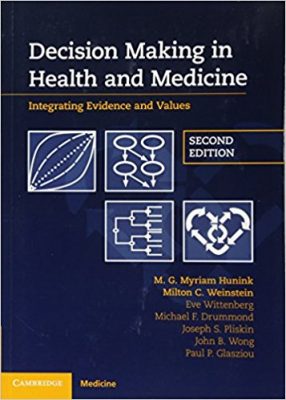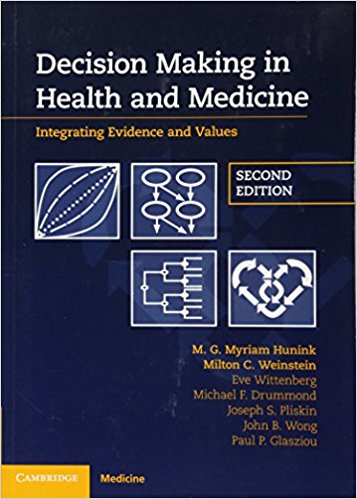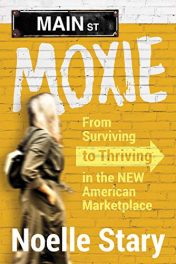 Authors: M.G. Miriam Hunink, Milton C. Weinstein, Eve Wittenburg, Michael F. Drummond, Joseph S. Pliskin, John B. Wong, and Paul P. Glasziou
Authors: M.G. Miriam Hunink, Milton C. Weinstein, Eve Wittenburg, Michael F. Drummond, Joseph S. Pliskin, John B. Wong, and Paul P. Glasziou
Publisher: Cambridge University Press – 424 pages
Book Review by: Nano Khilnani
Not just numerous considerations but many different types of them are involved when a decision needs to be made about the right next course of action involving the health of a particular patient:
At the outset of this book which should be in the library of any physician or surgeon, the authors point out several sets of factors to consider in health decision making:
- Diagnostic – Are the tests producing misleading results?
- Therapeutic – Will any of the considered treatments produce side effects, or will the particular surgery result in possible complications?
- Prognostic – What will happen to the patient if his or her condition is left untreated?
Other kinds of considerations also need to be taken into account, such as the patient’s or his family’s feelings, thoughts and/or values.
A thorough risk-versus-benefit analysis needs to be undertaken when trying to arrive at the most optimal solution, which is usually a trade-off between three usual objectives, the authors point out. These are:
- Maximizing quality of life
- Maximizing life expectancy
- Minimizing the resources required
This is an excellent text on making decisions on health matters because it takes a proactive, rational, and systematic approach. Some basic concepts it covers are:
- Bayesian revision
- Cost-effectiveness analysis
- Decision trees
- Markov models
- Micro-simulation
- Probability sensitivity analysis
- Value of information analysis
If you are involved in any way at all in these areas, this is the book for you:
- Clinical epidemiology
- Comparative effectiveness
- Evidence-based medicine
- Health economics
- Health technology assessment
- Public policy
Dr. Harvey V. Fineberg, President of the Institute of Medicine, summarizes the value of this book by writing in the Foreword:
“This book presents a systematic approach identifying, organizing, and considering these many complexities in health and medical care. In a sense, all of the tools described in these pages are designed to convert the complex and uncertain realities of health and medicine into the decision equivalent of the ‘stay or go’ question posed above.”
To give you a basic. essential overview of what you’ll find discussed in this important book, we provide to you below the titles of its 13 chapters:
- Elements of decision making in health care
- Managing uncertainty
- Choosing the best treatment
- Valuing outcomes
- Interpreting diagnostic information
- Deciding when to test
- Multiple test results
- Finding and summarizing the evidence
- Constrained resources
- Recurring events
- Estimation, calibration, and validation
- Heterogeneity and uncertainty
- Psychology of judgment and choice
This is an excellent work on a critical aspect of medical practice: making the best decisions.
Authors:
M.G. Miriam Hunink is Professor of Clinical Epidemiology and Radiology in the Department of Epidemiology and Radiology at Erasmus University Medical Center in Rotterdam, the Netherlands.
Milton C. Weinstein is the Henry J. Kaiser Professor of Health Policy and Management and Biostatistics at Harvard University School of Public Health at Harvard Medical School in Boston, Massachusetts. .
Eve Wittenburg is a Senior Research Scientist at the Center for Health Decision Science at Harvard University School of Public Health at Harvard Medical School in Boston, Massachusetts. .
Michael F. Drummond is Professor of Health Economics and former Director of the Center for Health Economics at the University of York in York, UK.
Joseph S. Pliskin is the Sidney Liswood Professor of Health Care Management at Ben-Gurion University of the Negev in Beer-Sheeva, Israel,
John B. Wong is Chief of the Division of Clinical Decision Making at Tufts Medical Center at Tufts University in Boston, Massachusetts. .
Paul P. Glasziou is Professor of Evidence-based Medicine and Director of the Centre for Research in Evidence-Based Practice at Bond University in Australia.






